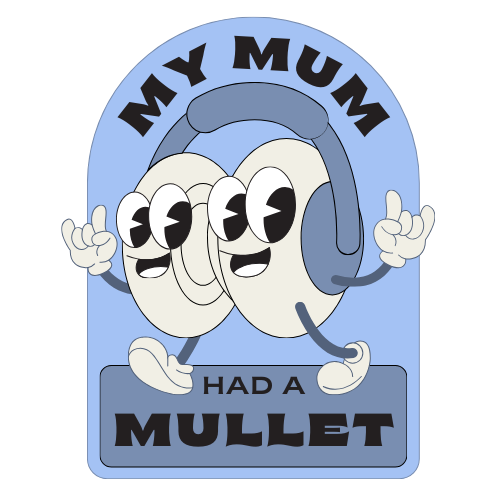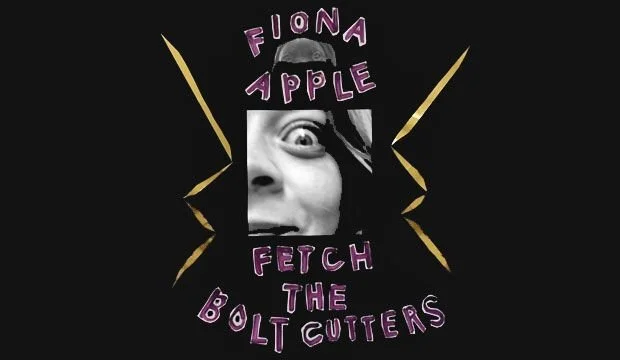Fiona Apple’s “Fetch the Bolt Cutters” turns 5
The album that started my Fiona Apple obsession
Fetch the Bolt Cutters is Fiona Apple’s fifth album, released five years ago today. Personally, I remember my state of mind when it came out. I was a passive Fiona Apple fan, with some vague knowledge of her and her work. I really only knew Criminal and Extraordinary Machine (not even the full album, just the song, which remains a favourite of mine).
She released this album in the early-ish days of COVID, when it felt like the world had finally come to its end. I had meant to listen to some of her music anyway, so when Pitchfork gave it a rare perfect 10/10, I figured I could give it a try.
The album is beautiful. It’s a weird cacophony of defiant lyrics and hypnotic chants. While definitely not a crowd-pleaser, it speaks to something deeper, exploring vulnerability while keeping that anger that defines a lot of Apple’s work. The title track touched on a feeling I dealt with for decades in such an accurate way, I couldn’t help but cry every time I heard it for about two months. At the risk of sounding cheesy, it healed something in me.
There is this weird mental tug of war that happens after being called names your whole life. You blame yourself for believing the terrible words said to you, because deep down you knew better. But at the same time, how can you blame a child for believing what they’re told? This is such a confusing feeling which Apple perfectly summarises in a throw-away, four-second line: “I’ve always been too smart for that, but you know what? My heart was not, I took it like a kid.”
Cue the tears.
“The album is beautiful. It’s a weird cacophony of defiant lyrics and hypnotic chants.”
It’s a song about forgiveness, not of the “bullies”, “it girls”, “cool kids”, or “wannabes”, but of yourself. “I listened because I hadn’t found my own voice yet”, she sings, “so all I could hear was the noise that people make when they don’t know shit… but I didn’t know that yet”.
With the knowledge that Apple acquired in her adult life, she fetches the bolt cutters she sings of, and sets herself free.
And yet she felt the most free in her home, where the album was recorded. In fact, her home has significant features in the album, such as in the pots and pans banging in the title track, or her dog Mercy barking in the outro. She stomped on her home’s floors, slammed the walls, and even her wind chimes make a welcome appearance, adding a tenderness to this cathartic record.
Under The Table is quintessential Apple: she doesn’t exactly scream, but she calmly states, “If you get me go and I open my mouth to the fucking mutton that they’re talking about, you can pout, but don’t you shush me.” All this happens in front of a gentle gliding piano scale.
“That’s why it’s such a therapeutic album—because Apple works through her baggage in real time, and takes us with her.”
When telling Pitchfork about the so-called “mistakes” or “aliveness” in this album, she mentions how she was trying to be a better musician on this record. Hence why it sounds so experimental and free. Apple finds new ways to play with her voice, saying, “I don’t feel like I’m such a great singer, like a beautiful voice, but I feel like I’m good at playing my voice. It’s just another instrument now. But it’s the best instrument. It makes so many noises.”
But there is still beauty in this playing. This is most evident in the hypnotic outro of Relay, or the ethereal closing chorus in For Her. That becomes all the more impressive when combined with the fact that each song was recorded in one take. Unedited, uncut.
She’s released herself from expectations, boxes that the “bullies” and “it girls” put her in. She goes back decades into her life to unpack everything. That’s why it’s such a therapeutic album—because Apple works through her baggage in real time, and takes us with her.
As all of Apple’s other work, it’s for those of us who are overly sensitive, over thinkers, and overly introspective. Perhaps it was so successful because it was released in a time when most of the world was forced to live in the same conditions Apple prefers to live: inside the house. So the little touches of the home as an instrument felt all the more natural and welcome in this project, as did the subject matter.
She speaks of childhood trauma and triumph. She sings of emotionally and physically letting herself free. She appeals to the inherent weirdness of the human existence.
People don’t like it because it’s not pretty. And they’re right, it’s not. And it doesn’t have to be. Its genius is in its embracing of all these different aspects of life. It’s not an easy listen, but most masterpieces aren’t
It’s not a very likeable or approachable album. It tests you, it tries new things, it’s unconventional. It trims the fat, leaving only what matters. It trusts itself and its intuition. It’s emotionally intelligent yet child-like, defiant yet tender.
Just like Fiona Apple.

